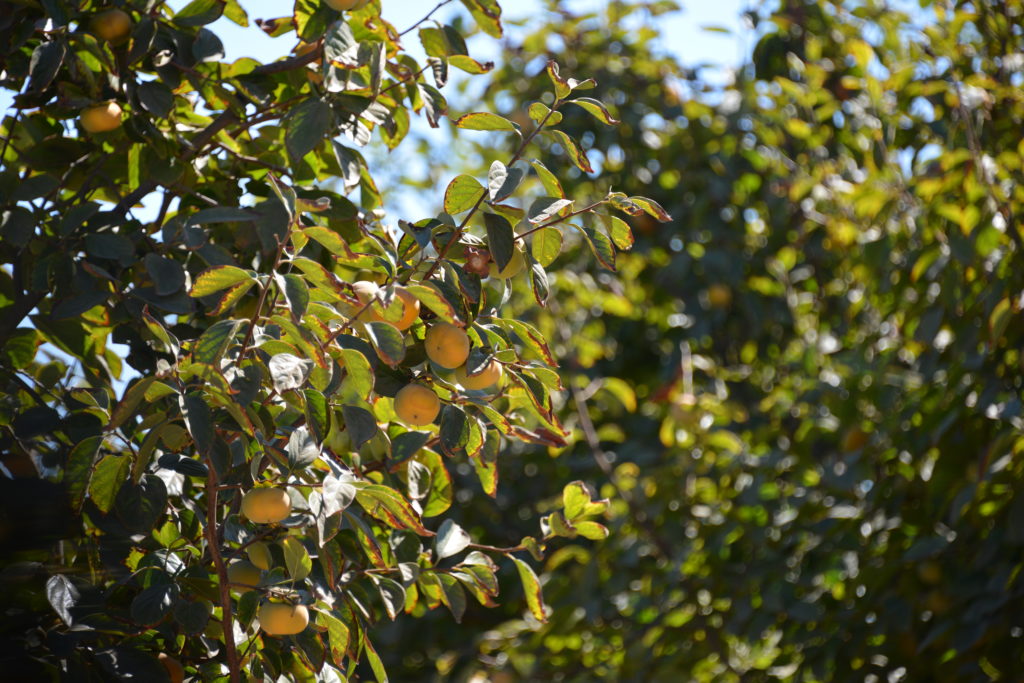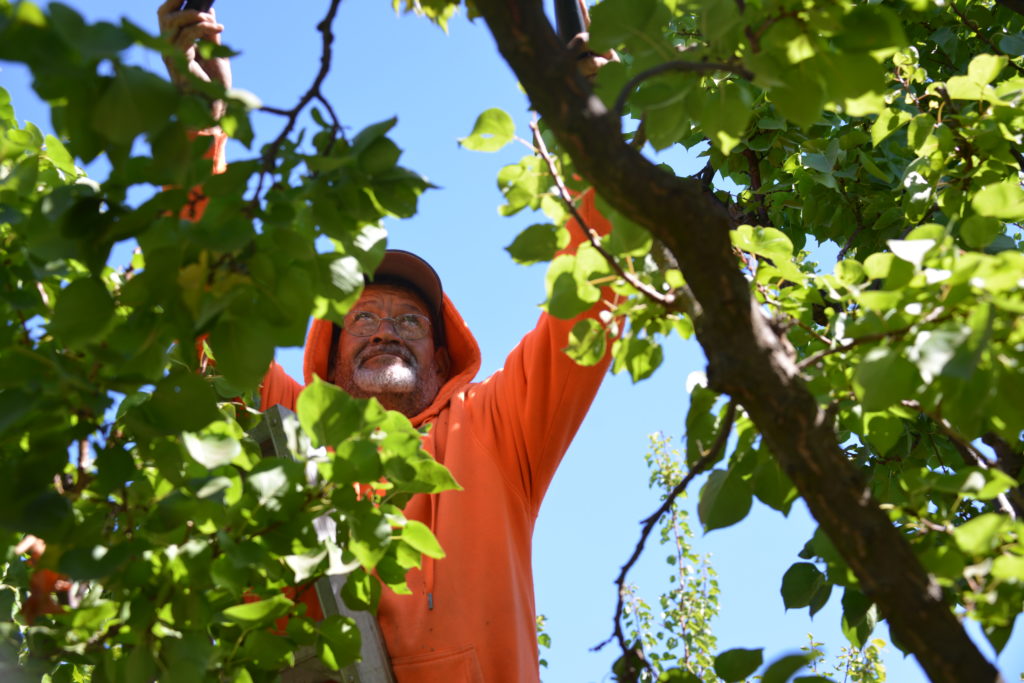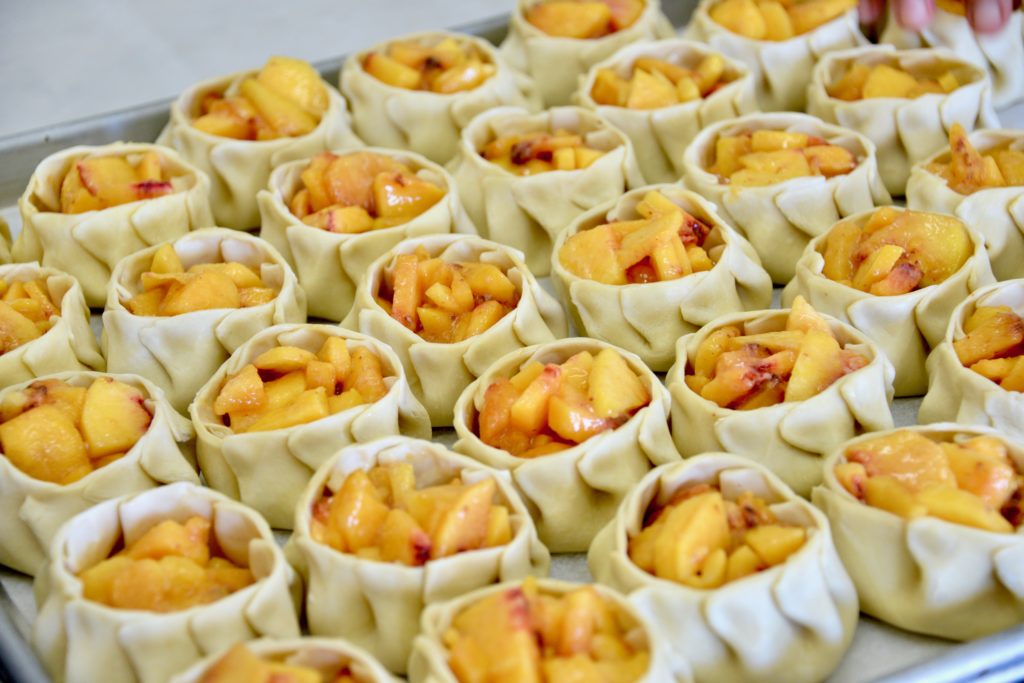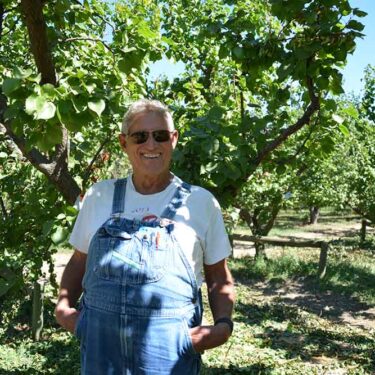Upon our arrival at Frog Hollow Farm, we were met by Farmer Al Courchesne. He greeted us with a wide smile, donned in his iconic blue denim overalls. Upon adorning masks, the four of us loaded into his car for a driving tour of the property.

Frog Hollow Farm is Contra Costa County’s organic Garden of Eden. On their 280 acres, fruits are harvested by hand just about all 52 weeks of the year. The bounty includes stone fruits like peaches and apricots, pome fruits such as apples, and pears, as well as specialties including mangoes, pomegranates, and olives. Al described to us the process of handpicking their three varieties of olives (Frantoio, Leccino, Maurino, and Pendolino) to get a perfect ratio of black and green to make their Tuscan style extra virgin oil. As we toured the verdant rows, it became evident how much Al cares for the land he stewards. There are no shortcuts taken in the growing, pruning, and harvesting. In all fruit picking, the efficiency of automated harvesting is forgone for the precision of hand-selected ripe fruit.
Aside from delicious produce, the farm also cultivates a strong community among its year-round employees; fifteen farmworker families are offered affordable housing on the property. Farmer Al remarks, “We like to think of ourselves as a family here at Frog Hollow.” In many households, both parents work on the farm, either tending to the trees or preparing produce. There is clear camaraderie among the many teams of people performing duties around the farm.

In addition to fresh fruits, Frog Hollow Farm makes a variety of jams, baked goods, and dried fruits. The kitchen, led by Rebecca Courchesne, uses fruit that would otherwise be discarded due to aesthetic imperfections. Culinary Coordinator Mario Hernandez is constantly developing creative and healthy ways to use produce in meals and dishes to serve CSA customers.

Resourceful uses for every grade of produce harvested means that only 10% of the crop is not eaten. This small percentage still has a valuable purpose, contributing to the 4,000 tons of compost produced onsite annually. Organic matter from the trees provides a carbon source, while nitrogen is derived through spent Blue Bottle Coffee grounds and manure from neighboring barns. The result is a blend that fosters microbial life in the soil, allowing for fruit trees to flourish. Farmer Al’s deep curiosity about soil health is explored through the expertise of Rachel Sullivan, a graduate of Cornell University’s College of Agriculture. Throughout the year, Rachel samples soil from various areas on the farm, monitoring for chemical, physical and biological content, as well as microbial biomass levels and populations, micro and macronutrient levels, cation ratios and soil structure. This curiosity for the earth provides information that aids in the betterment of soil health and carbon sequestration on the land.
Farmer Al is a curiosity-driven man whose commitment to regenerative agriculture is honorable. One day, he hopes to conduct a holistic study and sustainability report of Frog Hollow Farms.
